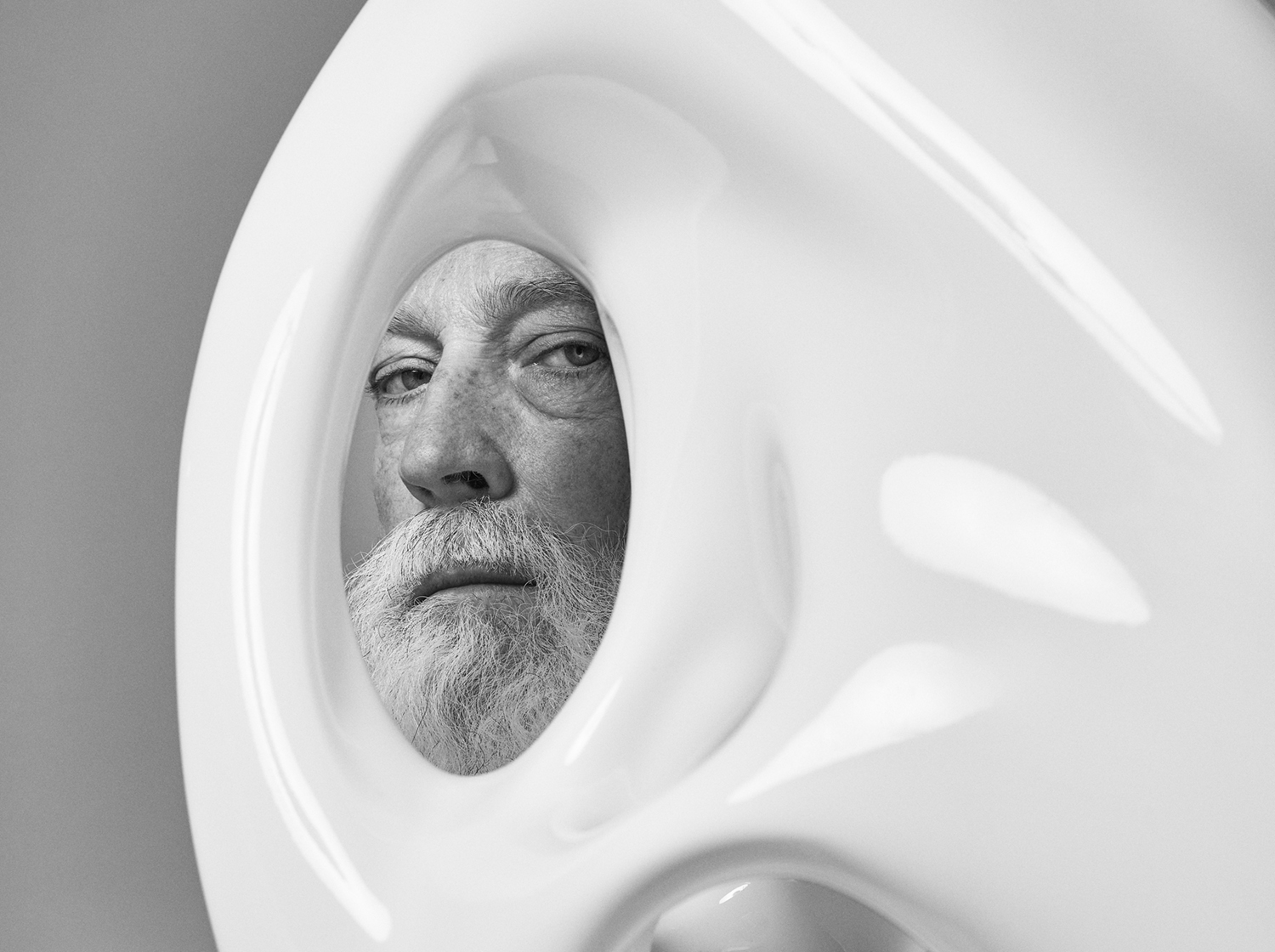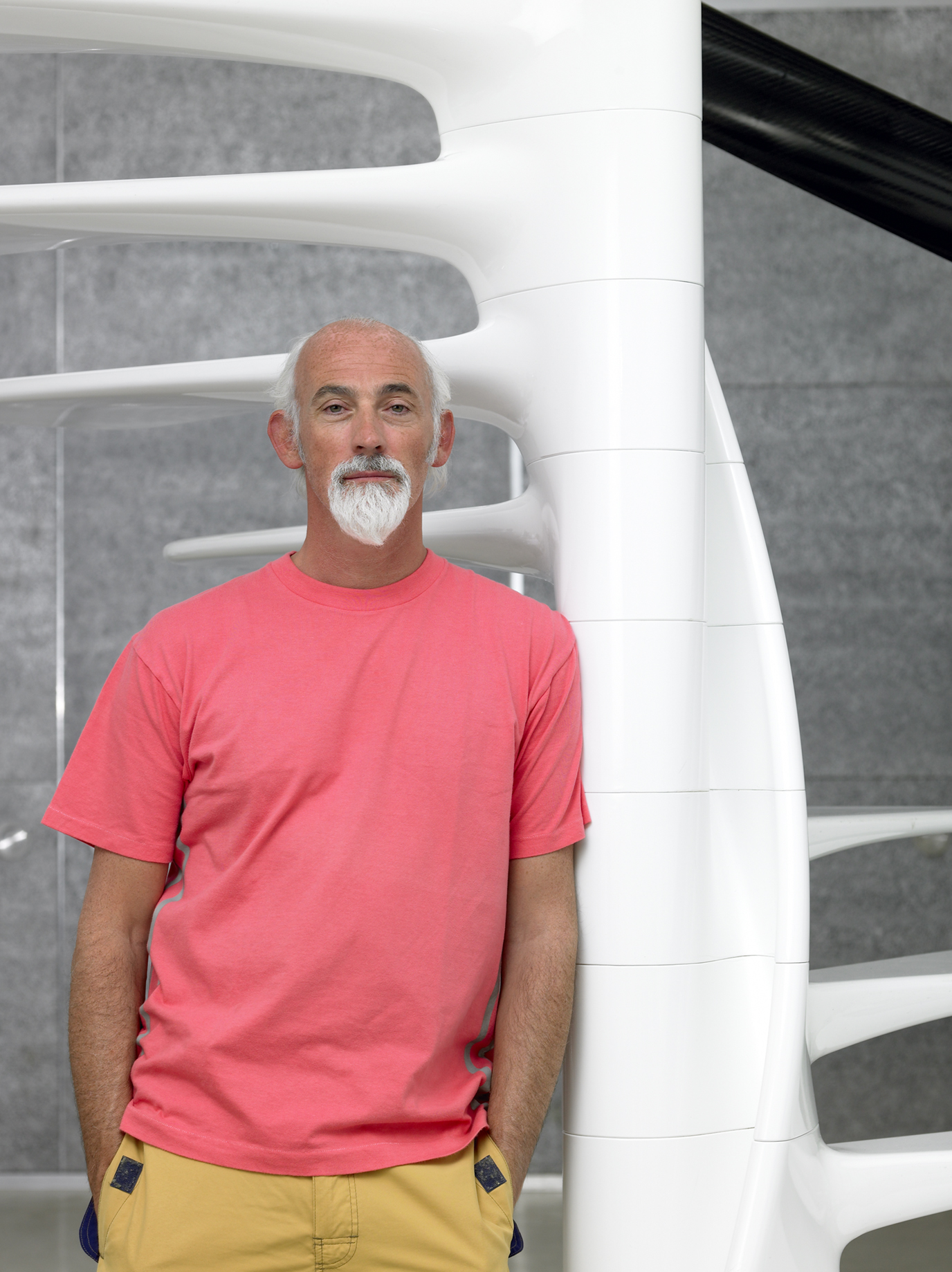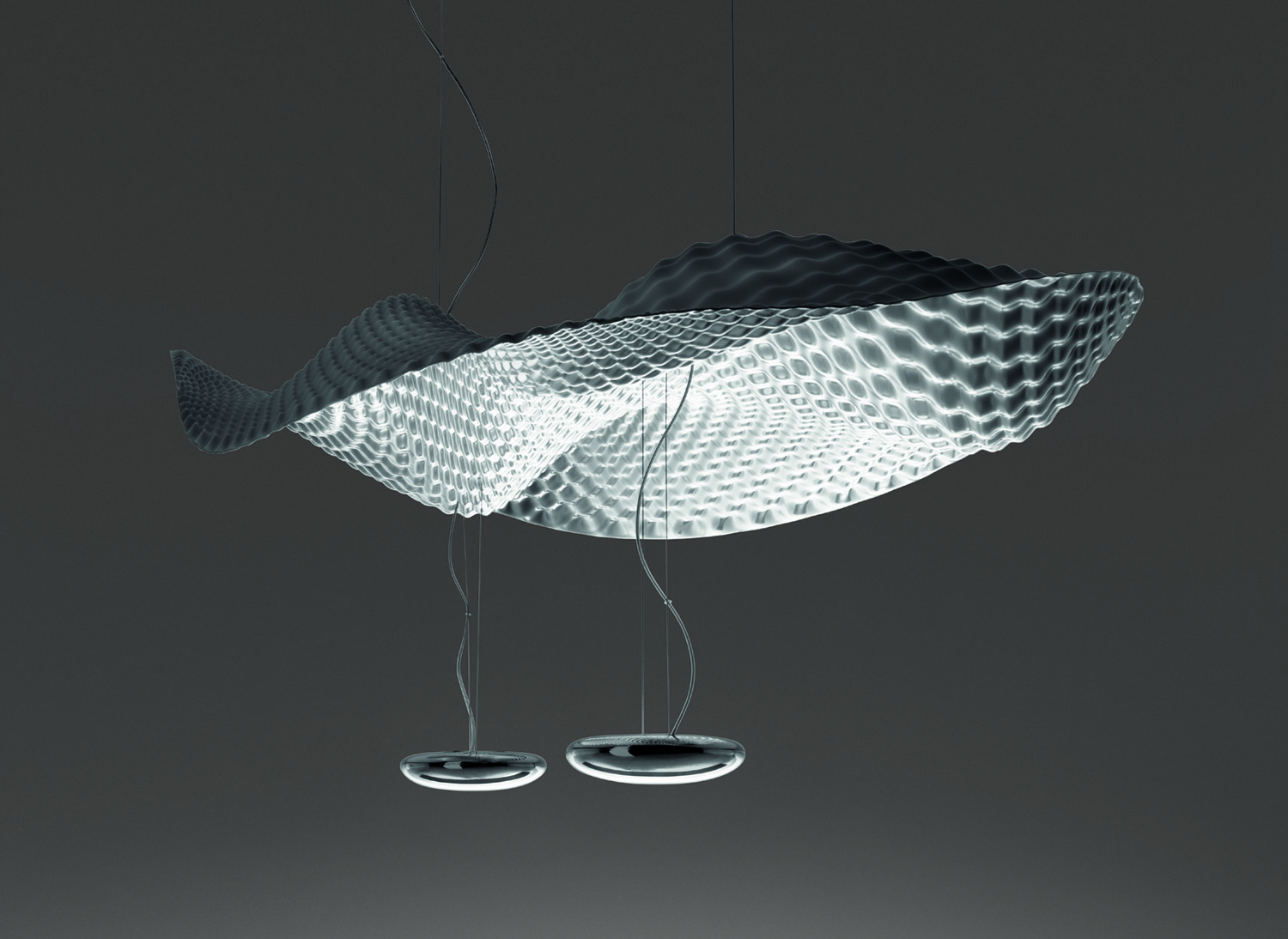

The Remarkable Podcast

Design is not so much about selling products and building brands for Ross Lovegrove, it’s a question of life and depth. His signature futuristic, organic forms have shaped everything from staircases to concept cars, fragrance bottles to bicycles, high tech speakers and plastic chairs – but Ross is more than one of the world’s most acclaimed industrial and product designers. As holistic as his work is high-tech, he is an artist, a thinker, a philosopher, and a passionate supporter of the environment, and challenger of the status quo. The best, he says, is yet to come.

Describing his childhood on the Welsh coast, Ross Lovegrove speaks of escaping to the sea for solace. Always scanning for new horizons, he says: “I was like a directionless missile hunting for anything of interest – and just like that, everything became interesting.”
Today, as for much of his career to date, that drive to explore the furthest edges of technology in the name of progress are what have long set Ross Lovegrove apart from the rest of the design profession. Described as a visionary, a sculptor and an artist as often as he is ‘designer’, it would seem this is a man who won’t be neatly labelled and categorised. And indeed why should he be? The most interesting ideas always do sit outside the proverbial box.
From the early 80s when he worked as a designer for Frog Design in West Germany on projects such as Walkmans for Sony, Computers for Apple Computers, Ross later moved to Paris as a consultant to Knoll International and subsequently joining the Atelier de Nimes along with Jean Nouvel and Philippe Starck, consulting to the likes of Cacharel, Louis Vuitton, Hermes and Dupont. Establishing his own studio Notting Hill, London he completed projects for amongst others Airbus Industries, Kartell, Ceccotti, Cappellini, Idee, Moroso, Luceplan, Driade, Peugeot, Apple Computers, Issey Miyake, Vitra, Motorola, Biomega, LVMH, Yamagiwa Corporation, Tag Heuer, Hackman, Alias, Herman Miller, Renault, Artemide, Japan Airlines and Toyo Ito Architects in Japan.
Ross Lovegrove’s products, whether furniture, lighting, concept cars, watches or perfume bottles, are distinctive – easily recognisable for their signature organic ‘space-age’ aesthetic but also for their innovative use of materials and – perhaps more than anything – their emotional presence. His famed water bottle for Ty Nant, designed in 2000, is an example – a stunning bottle that evokes the hypnotic motion of flowing water, is an example of how inspiration from nature and determination to make the impossible possible. Inspired by the logic and beauty of nature, his designs possess a trinity between technology, materials science and intelligent organic form, creating what many industrial leaders see as the new aesthetic expression for the 21st Century.
The first of his iconic series of speakers for KEF, the Muon stands two metres high in polished aluminium, calling to mind the abstract sculptures of Barbara Hepworth, Henry Moore and Anish Kapoor. Lovegrove found formal inspiration for a shape that hovered between art and design from its earliest conception, only possible by working intensively with the KEF team to calculate the precise shape a speaker ought to be in order to interact with soundwaves just so, IT experts made it possible to ‘sandpaper’ the Muon’s shape in 3D modelling. “To me it doesn’t matter if we’re working on a big or small commission; my role is to capture the imagination of an object, and to give it life,” he explains. With his deeply human and resourceful approach, Ross’s designs project an optimism, and innovative vitality.

All The Remarkable podcast episodes can also be found on Apple, Google and Spotify.

We love to hear from our friends and customers.
Please sign up to our newsletter to receive
news of releases, tastings and more.